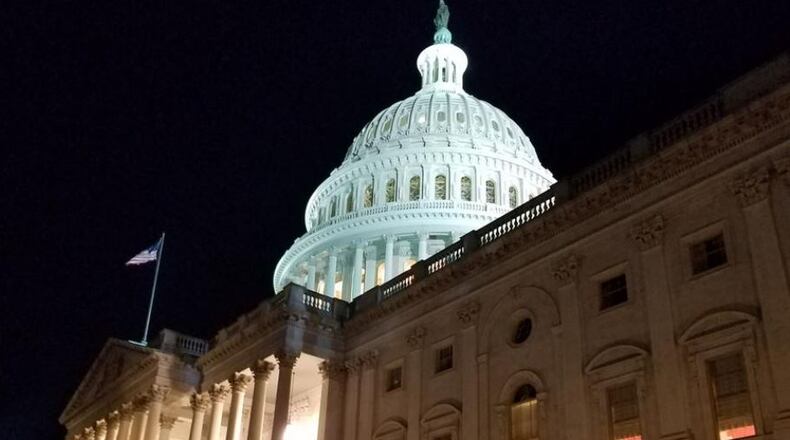"This upcoming balanced budget amendment shouldn’t be called a BBA; it should be called a CYA," said Rep. Justin Amash (R-MI), one of a number of fiscal hawks who feel their own party has abandoned a core principle of budget sanity.
The vote comes several weeks after the Congress approved a big increase in both defense and domestic spending as part of a two-year budget deal, which left conservatives infuriated.
A two-thirds super-majority is needed to approve an Amendment to the Constitution, and then send it on to the states for ratification.
With 237 GOP lawmakers, Republicans are certain to fall far short of the magic number on Thursday.
GOP leaders in the Congress have talked for years about balancing the budget - always portraying Democrats as the big spenders - but Republicans have never come close to detailing or approving the actual cuts needed to stop the tide of red ink.
Since gaining back control of Congress in the 2010 elections, GOP budget outlines proposed a balanced budget - but each time it would have taken up to ten years to reach that point.
Democrats denounced the GOP plan as nothing more than a charade, arguing Republicans exploded the deficit with a $1.5 trillion tax cut plan approved at the end of last year.
"This is just a cynical political ploy," said Rep. Earl Blumenauer (D-OR), as Democrats say the GOP goal is simple - cut entitlement spending.
"This Balanced Budget Consitutional Amendment is laying the groundwork for an attack on Medicare, on Medicaid, and on Social Security," said Rep. Ted Deutch (D-FL).
There have only been four years since 1969 when the federal government has not run a deficit - between 1998 and 2001.
Otherwise, it's been a growing river of red ink.
Here is a list of yearly federal budget deficits since Fiscal Year 2007:
2007 - $160.7 billion
2008 - $458.6 billion
2009 - $1.412 trillion
2010 - $1.294 trillion
2011 - $1.299 trillion
2012 - $1.087 trillion
2013 - $679.5 billion
2014 - $484.6 billion
2015 - $434.5 billion
2016 - $584.6 billion
2017 - $665.3 billion
The latest figures out from the Treasury Department on Tuesday showed 2018 will most certainly have a higher deficit than a year ago - the deficit for March was $209 billion, putting the deficit so far this year at $599 billion.
In March, the federal government spent $420 billion, but brought in just $211 billion in revenues.
The updated Congressional Budget Office estimate for 2018 is a deficit of $804 billion.
The CBO predicted a $981 billion deficit in 2019, followed by deficits over $1 trillion. There were four yearly deficits over that mark in the Obama Administration.
About the Author
